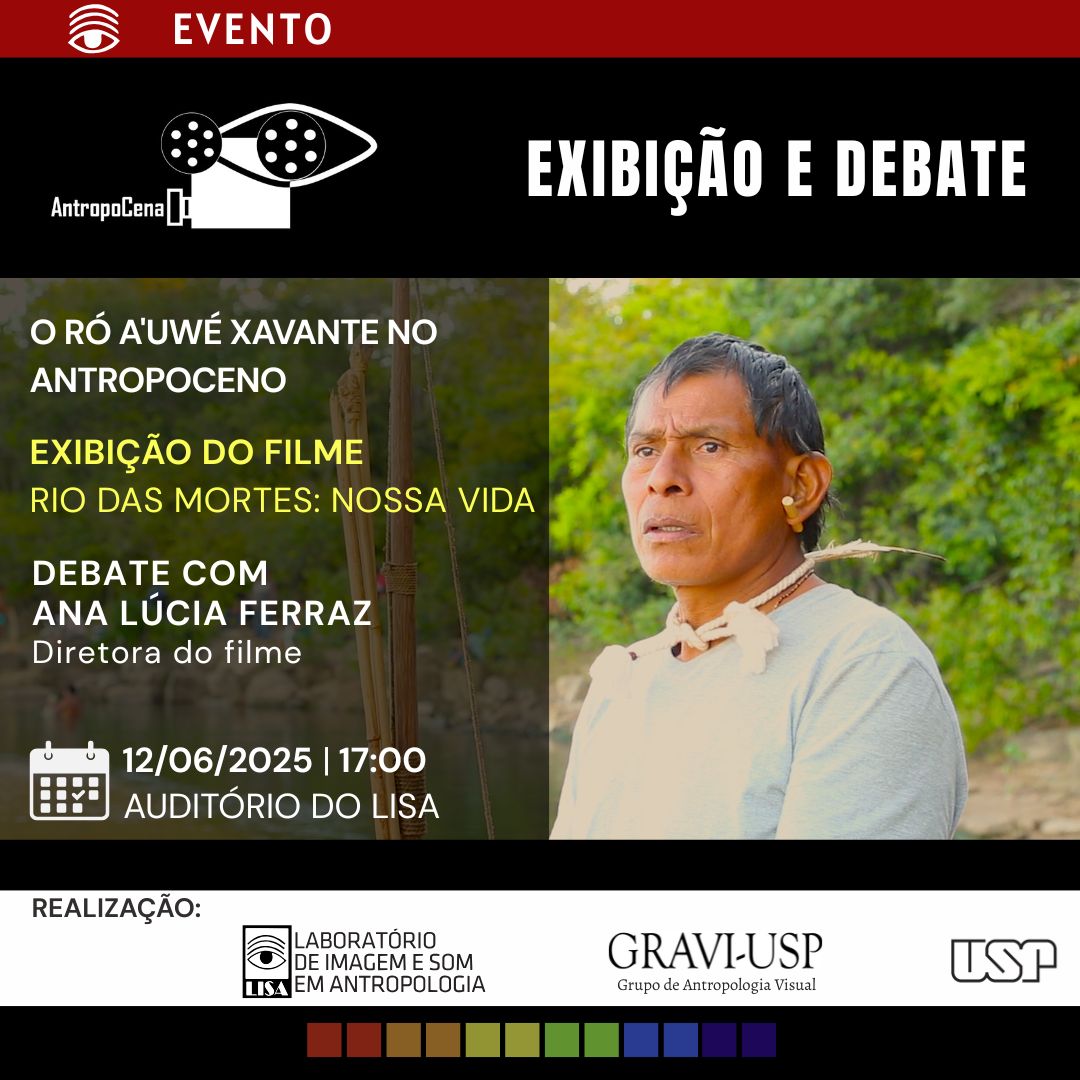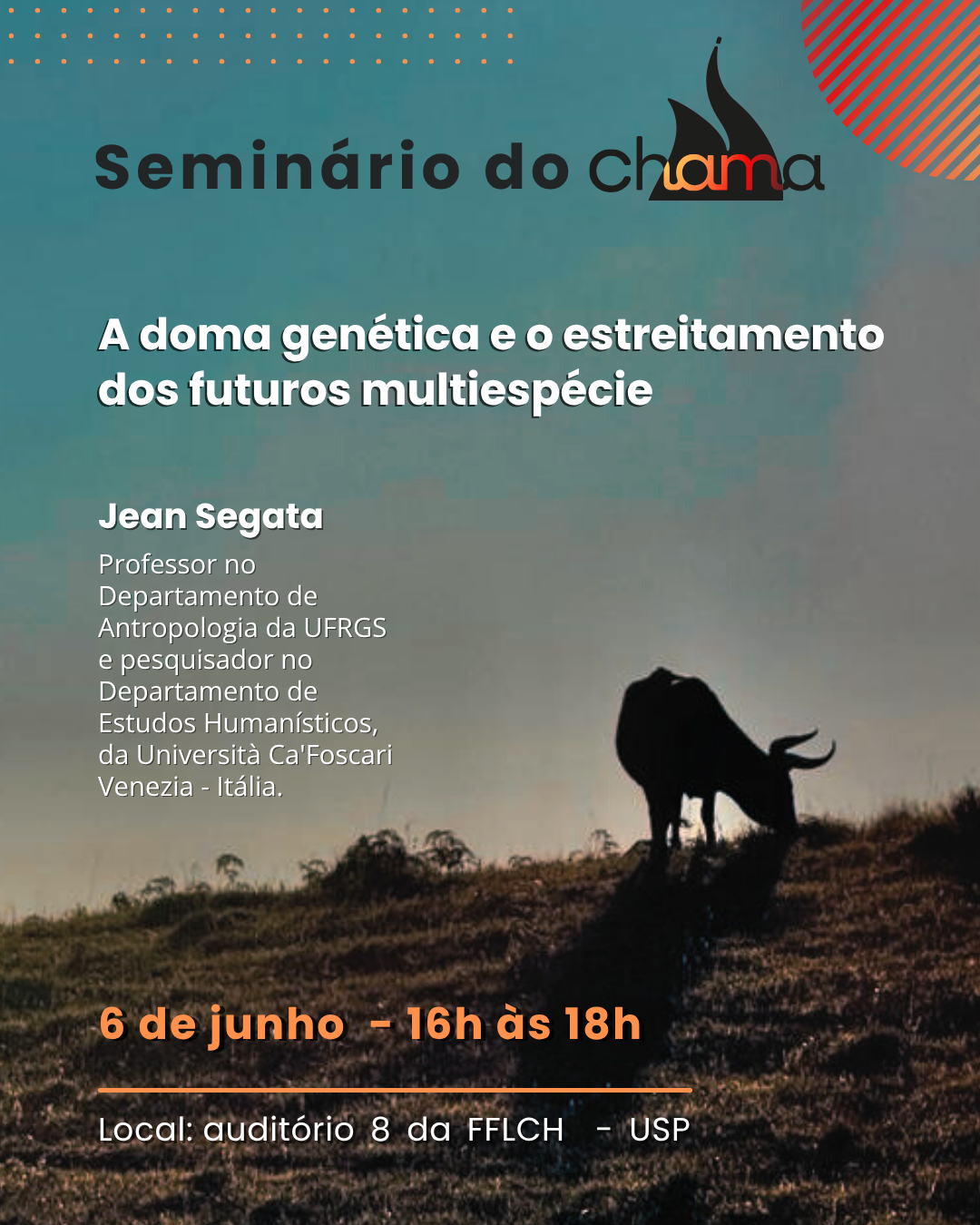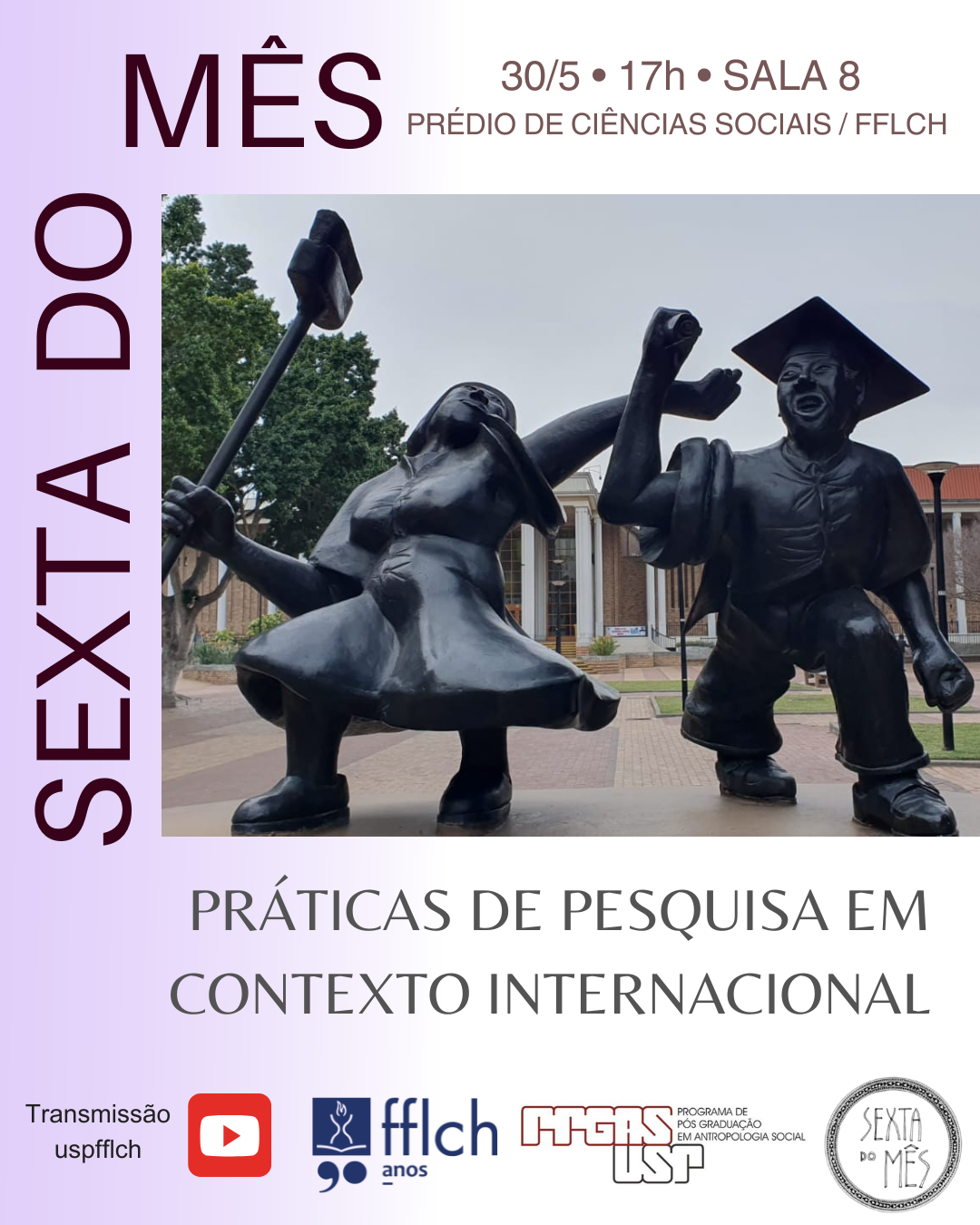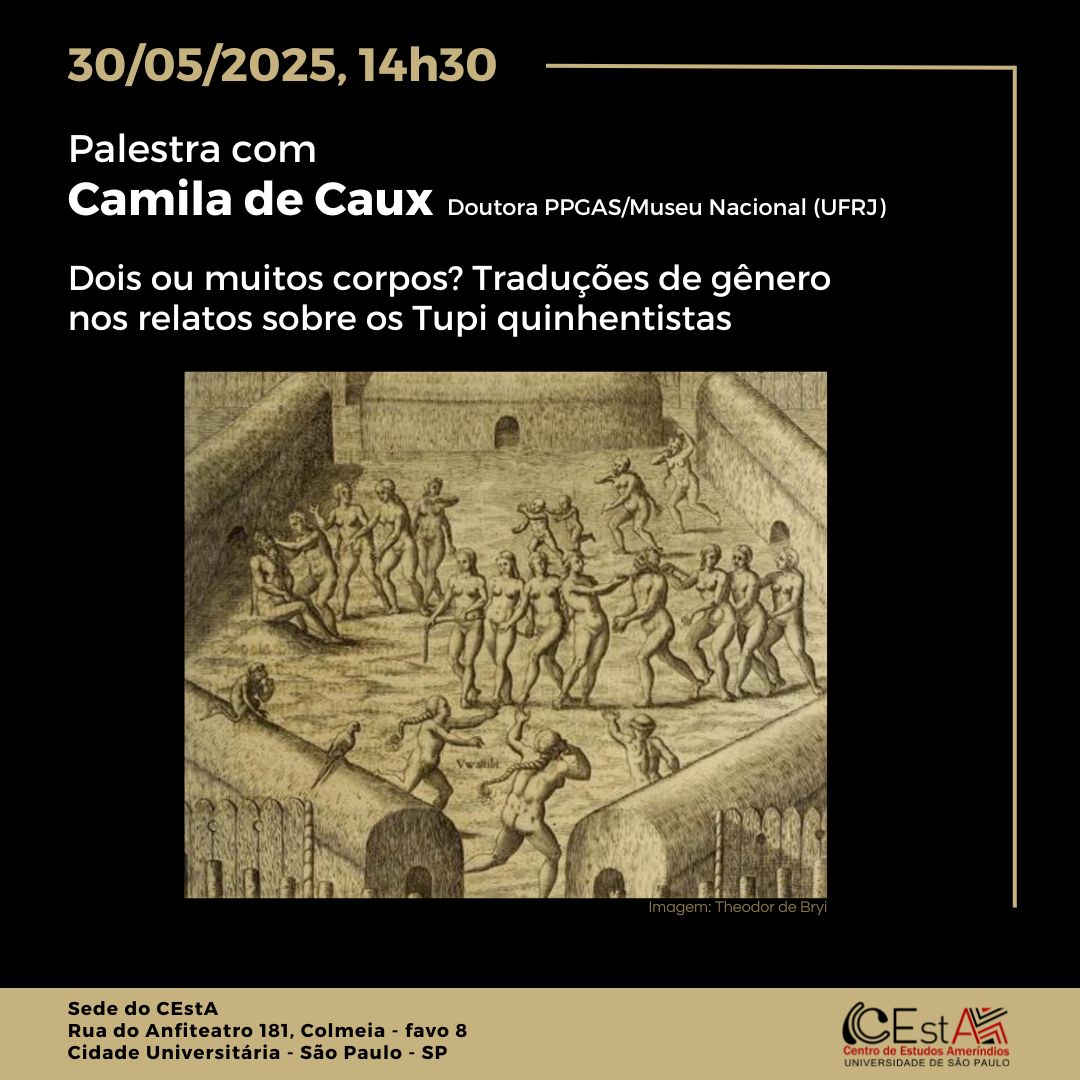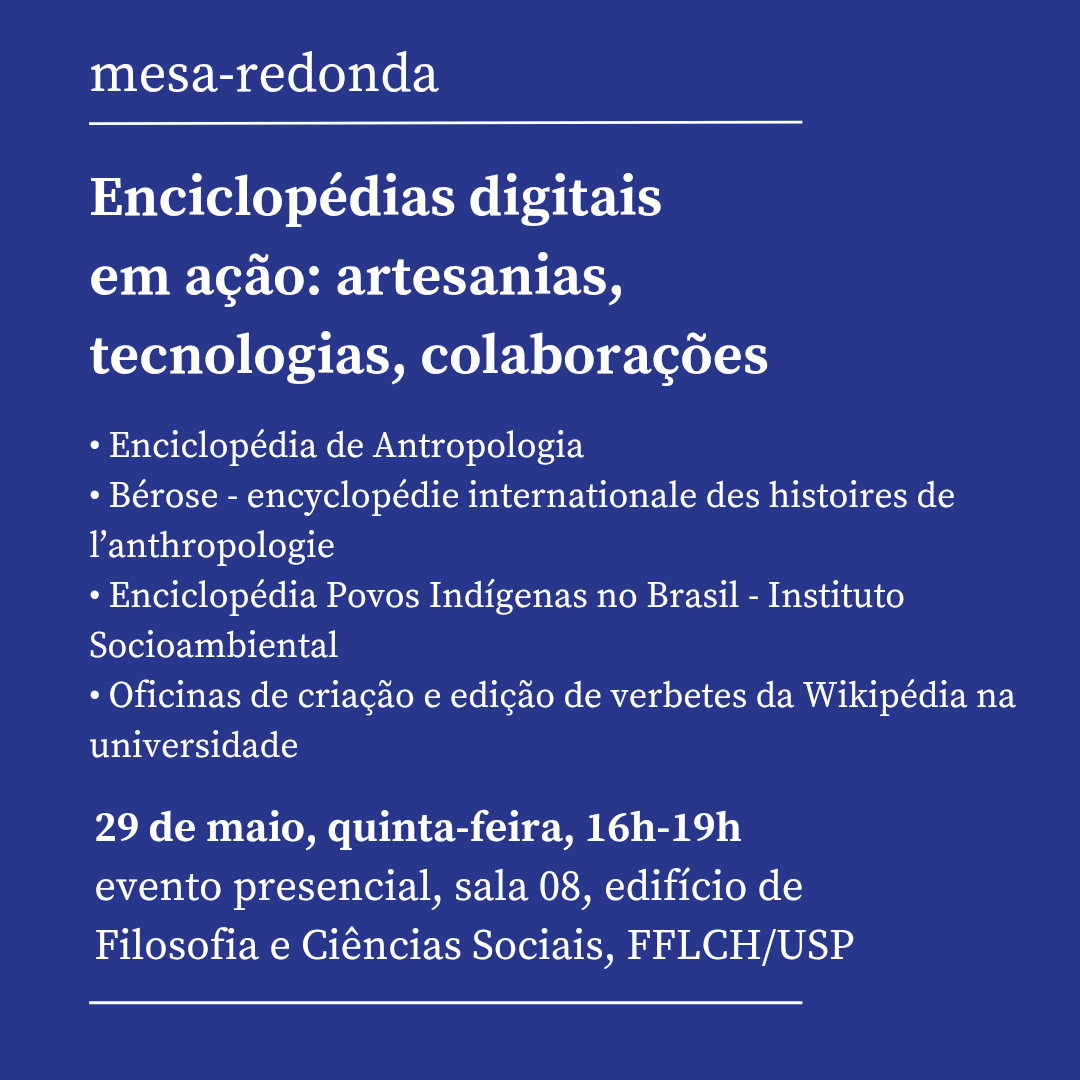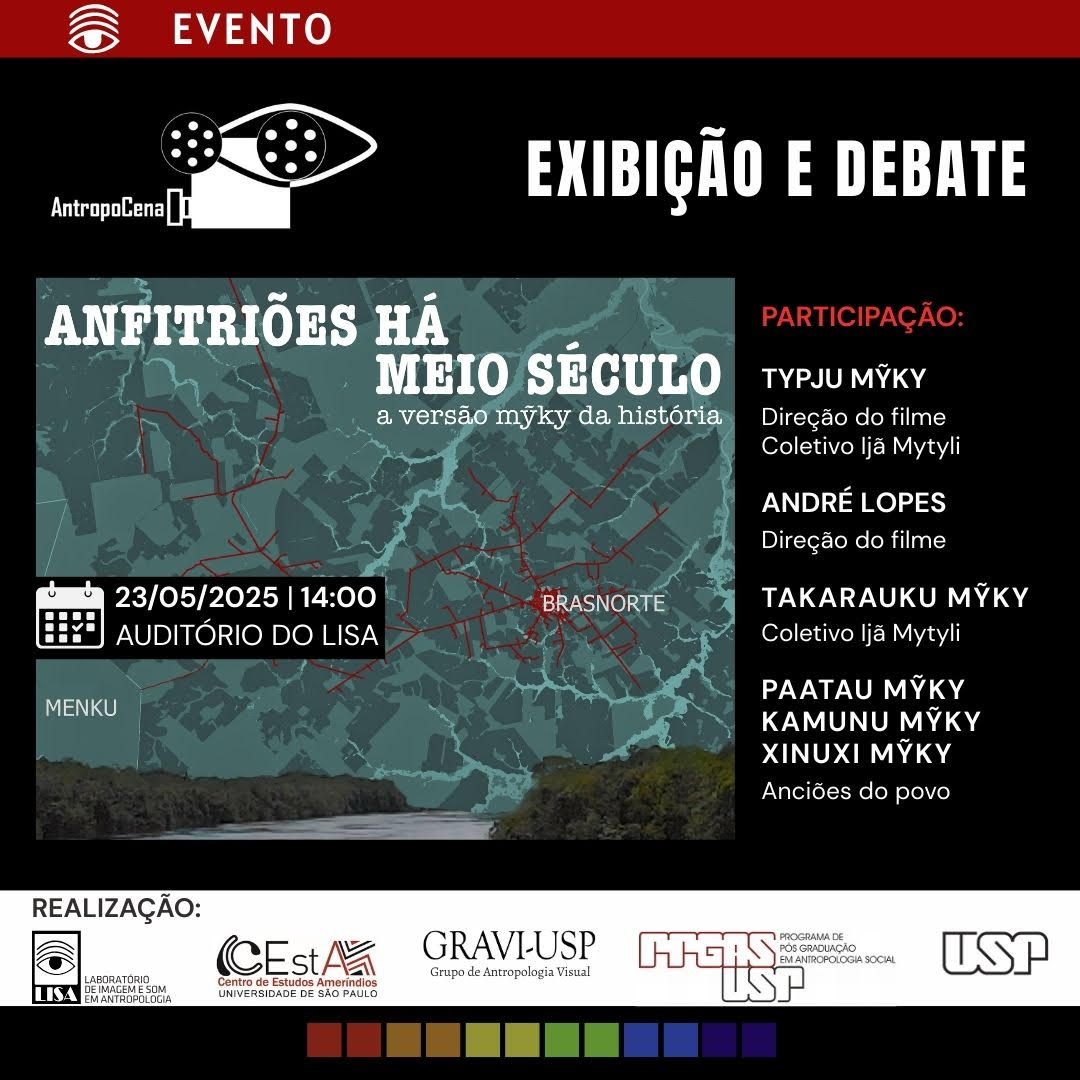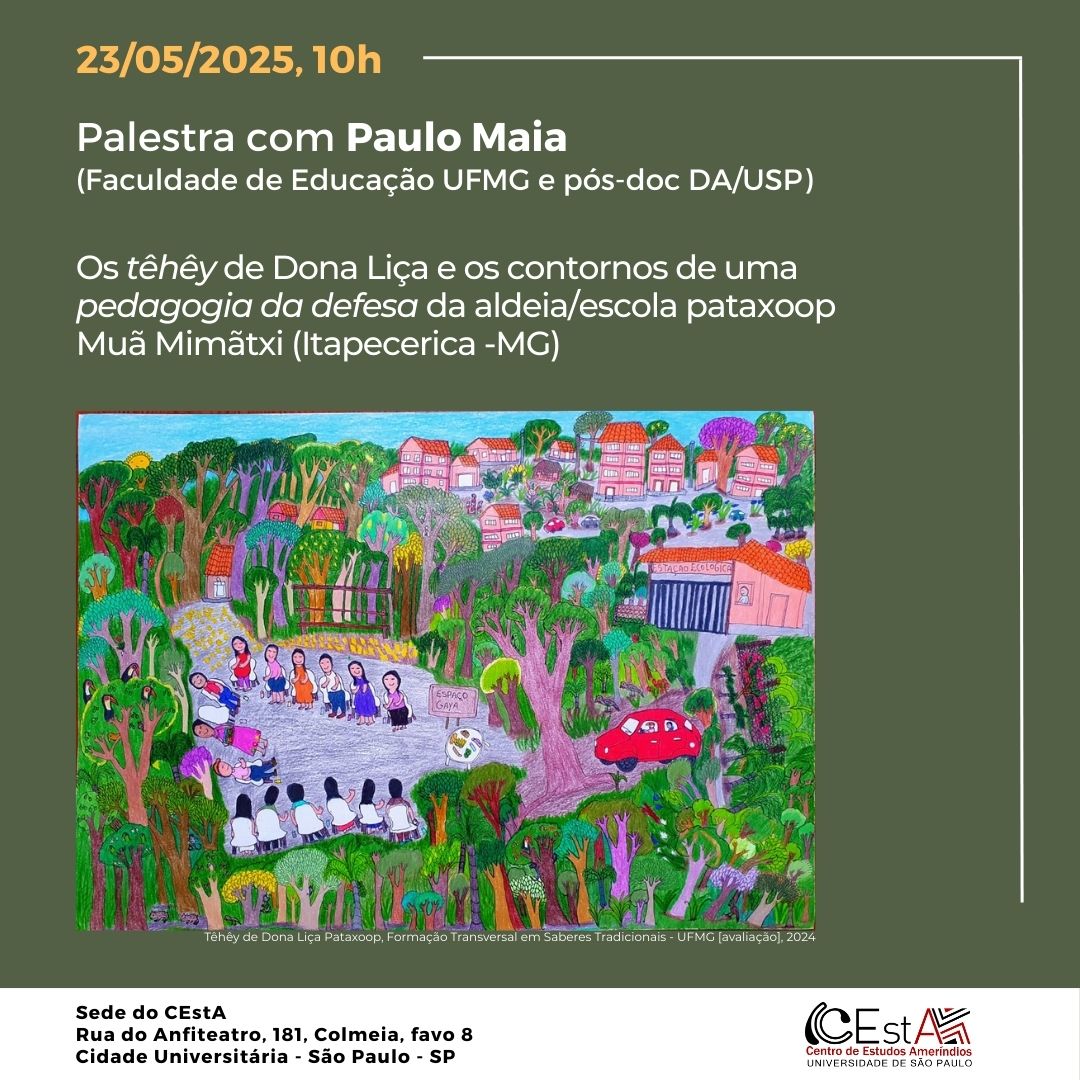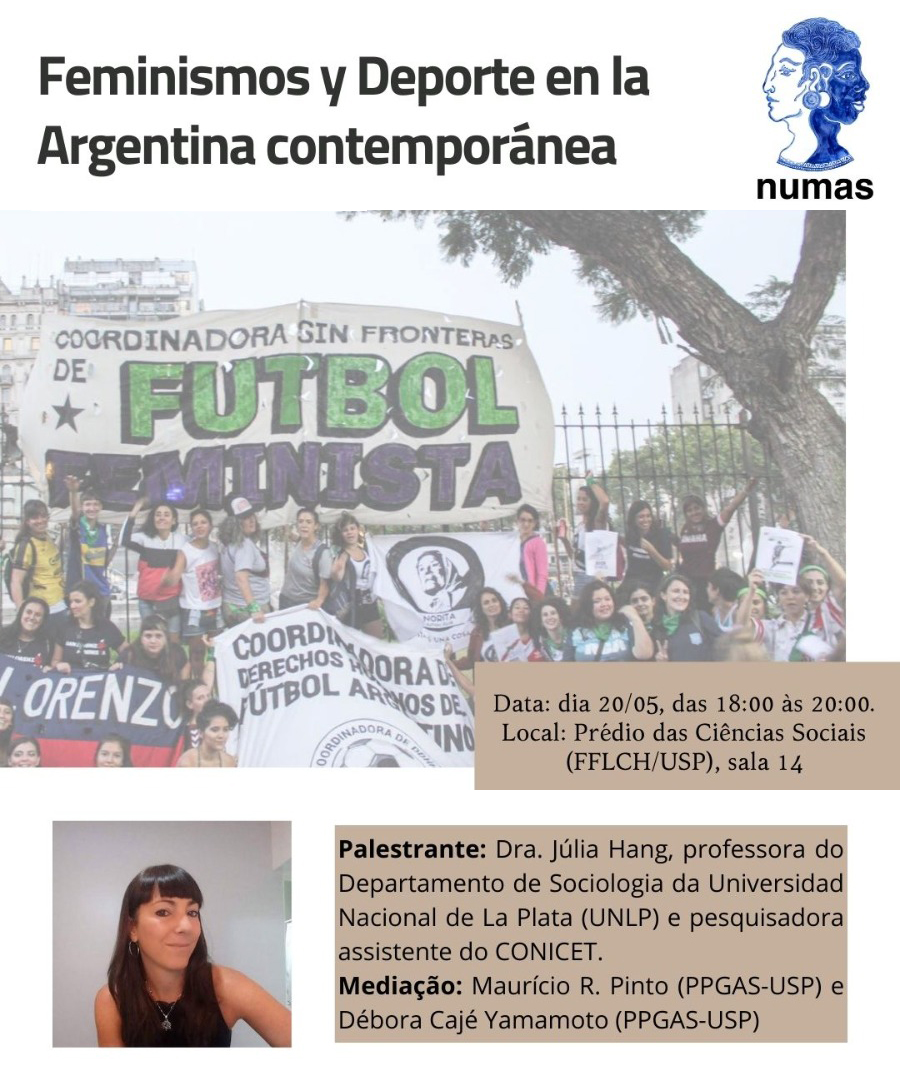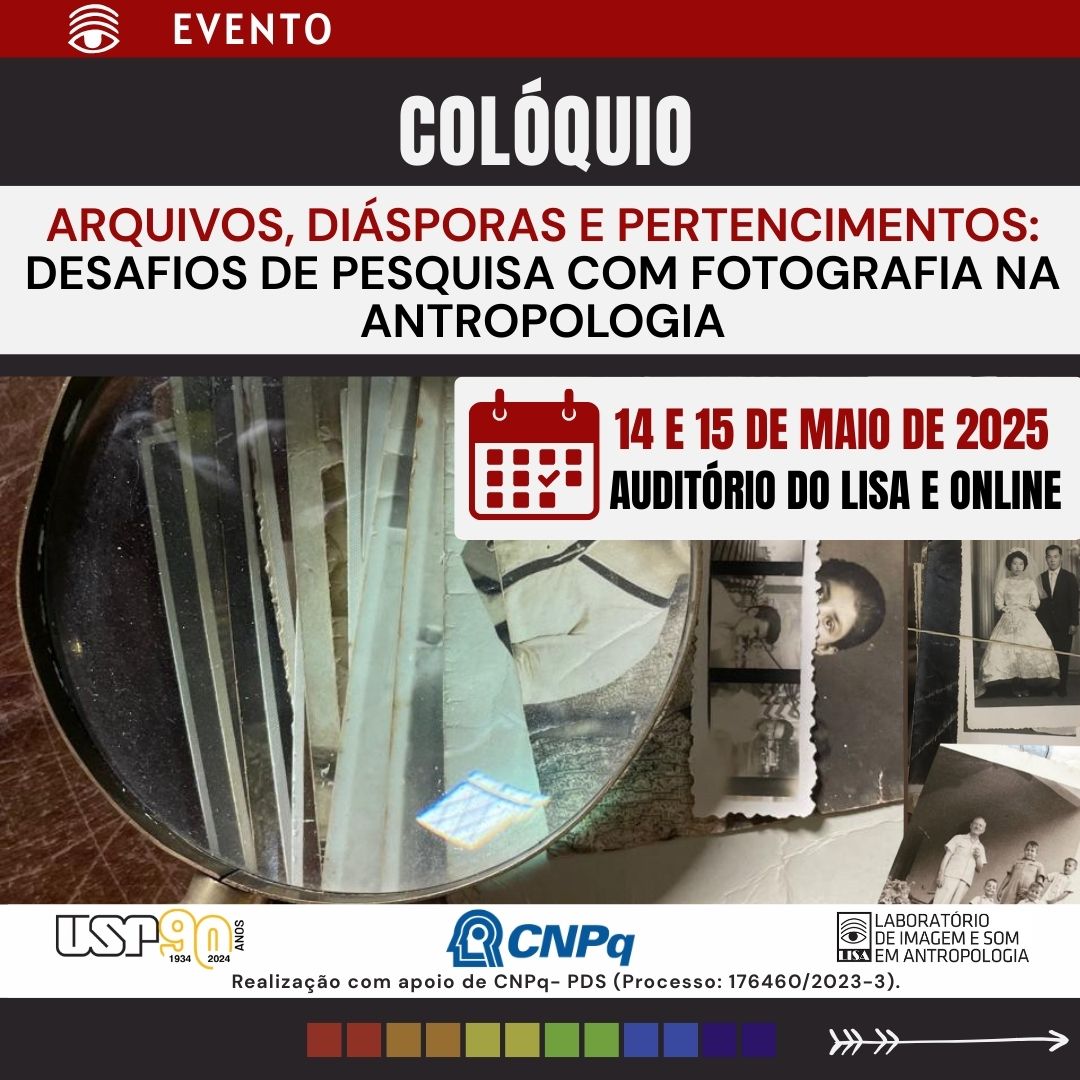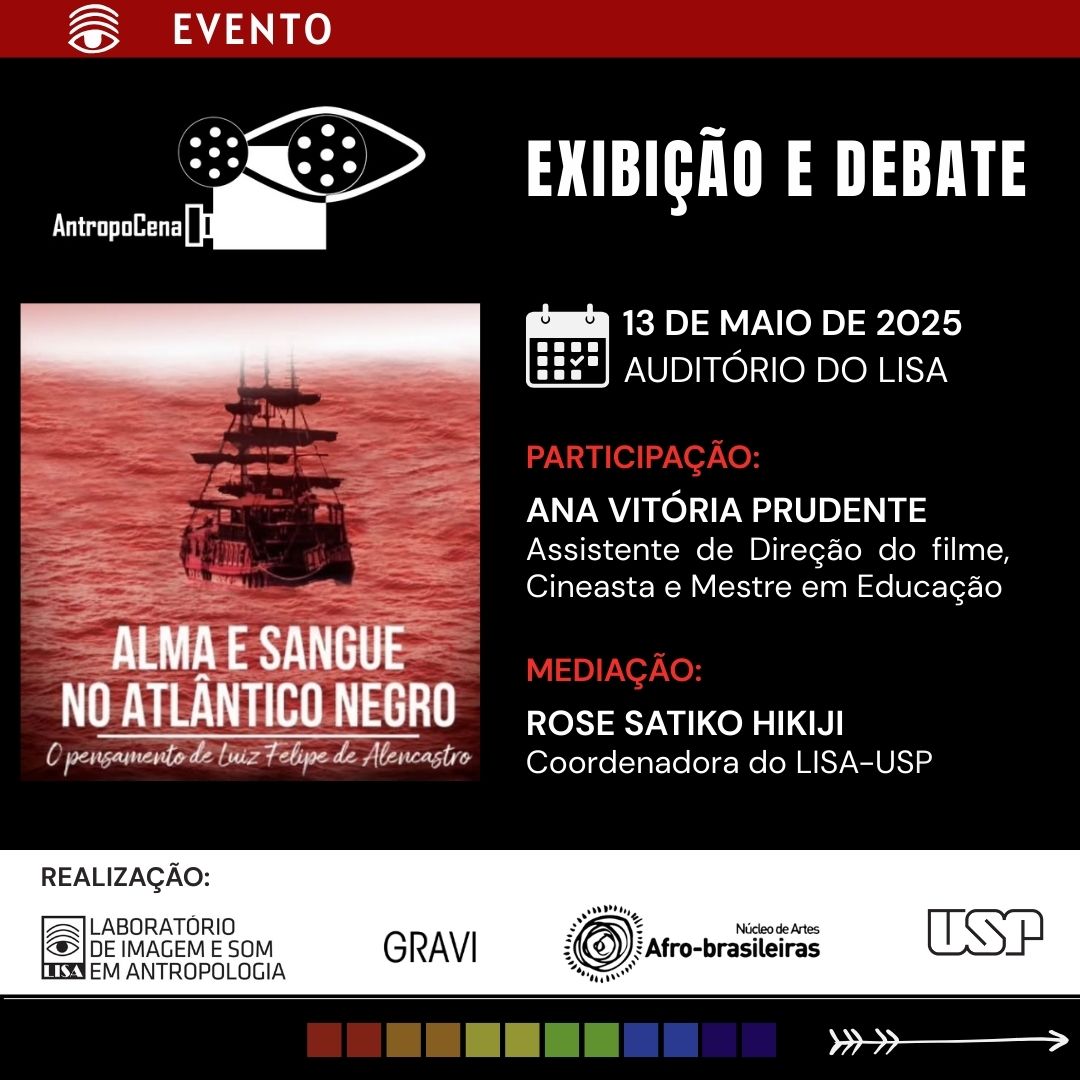Events
The film “Rio das Mortes: nossa vida” will be shown in the AntropoCena session on June 12, 2025, at 5:00 p.m., in the LISA auditorium, in partnership with the Visual Anthropology Group of the University of São Paulo (GRAVI-USP), and will feature the presence of Ana Lúcia Ferraz, Associate Professor of the Department of Anthropology and Coordinator of the Ethnographic Film Laboratory of the Fluminense Federal University (UFF).
Ana Lúcia graduated from USP and holds a master's degree in Anthropology (1999), a PhD in Sociology (2005), and a postdoctoral degree in Social Anthropology (2010). She currently works in the fields of Indigenous Ethnology and Visual Anthropology, and is the author of a series of ethnographic films, including, with the Guarani Nhandeva, Nhande Ywy/Nosso Território (2018) and Öwawe dahoimanadzé/Rio das Mortes: nossa vida (2024).
It is a film that explores the ancestral territory of the A’uwé uptabi people (Xavante) and presents their relationship with the waters of the Rio das Mortes, which is threatened by hydroelectric dams. The objective of this ethnography in progress is to establish the territoriality of the A’uwé Xavante by documenting their diverse practices with the river, their cosmological conceptions, and the centrality of hunting in the A’uwé way of life in the Cerrado.
AntropoCena is an initiative of LISA and aims to bring to the public the audiovisual production carried out by researchers from USP, through screenings and debates.
- The event will take place at Rua do Anfiteatro, nº 181, favo/sala 10, Cidade Universitária, SP
- Free entry, subject to space limitations
- No registrations
<p>On June 6 (Friday) there will be a seminar entitled "Genetic taming and the narrowing of multispecies futures", which will be taught by the professor of the Department of Anthropology at UFRGS and researcher at the Department of Humanistic Studies at Università Ca'Foscari Venezia, Dr. Jean Segata. The event will be held from 4 pm to 6 pm, in auditorium 8 of FFLCH - USP, and is promoted by the anthropology collective CHAMA.</p>
<p>Segata's research describes the transformations in the relationships between humans, cattle and the environment in the southern fields of Brazil, following the consolidation of British bull breeds, such as Angus, valued for the quality of their meat. The success of this breed in the tropics is the result of a prolonged process of genetic improvement, which combines advanced biotechnologies, precise zootechnical management, local knowledge and socio-environmental memory. More recently, the incorporation of genomics and mating algorithms has redesigned cattle breeding, modifying temporalities, bodies and reproductive functions. This technological arrangement, however, produces ambivalent effects: on the one hand, it strengthens genetic flows and positions Brazilian Angus as a distinct lineage in global meat markets; on the other hand, it contributes to the narrowing of multi-species futures, in which places like the Pampas and the Planalto Serrano Catarinense become not only new territories of innovation, but also stages of a silent drama, in which races considered economically inefficient disappear along with knowledge, traditions and ways of life, discontinued in the name of market-driven modernization.</p>
<p>The Anthropology, Environment and Biotechnodiversity Collective (CHAMA) is a research group that was created in the Postgraduate Program in Social Anthropology (PPGAS -USP) and focuses on classical studies of the anthropology of technology and the emerging anthropology of life to launch a program of teaching, research and scientific dissemination on biotechnodiversity, that is, the diversity of biotechnical actions and concepts.</p>
INVITATION | Friday of the Month invites everyone to the May thematic panel! ✨
Theme: “Research practices in an international context”
Anthropology has historically consolidated itself as a field of knowledge intrinsically intertwined with colonial projects, oriented towards the construction and investigation of a supposedly radical Other, conceived from epistemic and political asymmetries, often designed as if it were located overseas. The production of this knowledge has always been crossed by internal and external disputes, including financial ones, involving multiple scales — local, transnational and imperial — that put tension on the ways of knowing, representing and relating to otherness.
The objective of this panel is to share the paths and obstacles involved in conducting ethnographic research in contexts of radical alterity. The proposal of this panel is to reflect on whether this previous construction is acceptable and makes sense in the type of research we currently conduct, on the dynamics of fieldwork and the processes of cultural and linguistic adaptation, and also on the possibilities and challenges related to research funding.
👥 Invited guests:
* Thais Tiriba (PhD student at PPGAS/USP)
* Guilherme Amorim (Master's student at PPGAS/USP) • @gui.namorim
* Liza Acevedo Saenz (PhD student at PPGAS/USP)
* Laura Moutinho (Professor at the Department of Anthropology at FFLCH/USP) • @lalamou_
▶️ Link to broadcast: https://youtube.com/live/b_9F7e0HwLQ
The table is open to all audiences, so feel free to participate and bring colleagues.
📷 The statue, called the beginning and the end, is located in the main square of the University of the Western Cape campus and depicts a domestic worker and her graduate son, by artist David Hlongwane (photo by Thais Tiriba)
In this talk, I present the first reflections of an ongoing research project dedicated to investigating the processes of elaboration of gendered bodies among the Tupi peoples of the sixteenth century. By tracing the vocabulary of substances abundantly present in the chroniclers’ accounts—references to blood, semen, cauim, puba, among others—I seek to evoke echoes of a cosmopolitics of substances, in which gendered bodies were formed by voluntary, collective, and densely conceptualized acts. In this first approach, I propose a panoramic view: I begin with the role of substances and their flows in the rituals of post-menarche and post-homicide seclusion, which aimed at the formation of adult male and female bodies, and I conclude with a reflection on some figures that escaped the binary colonial technology of genders used by the chroniclers: the transgender figures “tebira” and “çacoaimbeguira,” the young “panema” and the old “uainuy.”
The Encyclopedia of Anthropology will celebrate its 10th anniversary in 2025! This date calls for celebrations, but above all for assessments and reflections on the work carried out in order to plan future projects.
In this sense, we invite the public to the roundtable "Digital encyclopedias in action: crafts, technologies, collaborations", organized in partnership with the Ethnographic Laboratory of Technological and Digital Studies at USP.
The event will bring together scientific dissemination projects for an exchange of experiences on the production of digital encyclopedias, considering the challenges of collaborative management, editing and writing. In addition to EA, we will talk about the encyclopedias Indigenous Peoples in Brazil, from the Socioenvironmental Institute, and Bérose - encyclopédie internationale des histoires de l’anthropologie; and also about workshops on creating and editing Wikipedia entries, which have been held at the university, promoted by Wikimedia Brasil.
The panel will feature the participation of Fernanda A. Peixoto (EA/Bérose), André S. Bailão (EA), Carolina Parreiras (LETEC/USP), Tatiane M. Klein (PIB/ISA) and Isabela Tosta (Labjor/Unicamp), as well as members of the editorial committees. We will discuss the potential and limitations of the “encyclopedia” format; the transformations of projects over time and their scope and uses; the production (artisanal and collaborative) of entries and its challenges; and new artificial intelligence technologies.
The event will be in person and open to the public.
LISA, CEstA and GRAVI invite you to the screening of the film "Hosts half a century ago: the mỹky version of history" on May 23, 2025, at 2 pm, in the LISA auditorium.
Co-produced by LISA in partnership with Ijã Mytyli Manoki and Mỹky Cinema Collective, the film had its premiere at a festival organized by the Latin American Coordinator for Cinema and Indigenous Peoples (CLACPI) and New York University (NYU). The screening took place on April 25, 2025 and was part of a side event of the United Nations Permanent Forum on Indigenous Issues. Director Typju Mỹky also participated in the Forum, as the first Mỹky person to represent his people at the United Nations (UN), and denounced the current impasse in which the process of demarcation of his land finds itself, after it was canceled by the Minister of Justice of the Bolsonaro government, Anderson Torres. The screening of the film, which addresses the theme of the Mỹky territory, included a session commented in person by the directors and professors Faye Ginsburg, Professor of Anthropology and coordinator of the Center for Media, Culture and History at NYU, and Amalia Córdova, curator of the Smithsonian Center for Folklife and Cultural Heritage. The documentary also participated on May 4 in the Margaret Mead Film Festival, an important ethnographic film festival that has been held for over 40 years at the American Museum of Natural History in New York.
The documentary will have its official premiere next week, on May 22nd, at 8 pm, in a session at CineSesc and will also be shown in the LISA auditorium, as part of the AntropoCena project, in partnership with the Center for Amerindian Studies (CEstA-USP) and with the Visual Anthropology Group (GRAVI-USP), in the session on the 23rd, at 2:00 p.m. These sessions will be attended by a delegation of five Mỹky representatives, made up of filmmakers and elders. They are coming to São Paulo for the first time and will present this work to the public, along with other members of the team. André Lopes, one of the film's directors, is a researcher at GRAVI-USP and defended his doctorate at PPGAS-USP in 2022. Since 2012, André has been making films in partnership with indigenous interlocutors, with support from LISA in finalizing the work.
AntropoCena is an initiative of LISA and aims to bring to the public the audiovisual production carried out by USP researchers, through exhibitions and debates.
- The event will take place at Rua do Anfiteatro, nº 181, favo/room 10, University City, SP
- Free entry, subject to space limitations
- No registrations
We look forward to seeing you!
TALK WITH PAULO MAIA
(UFMG School of Education and post-doctorate DA/USP)
Têhêy is the name given by the Pataxoop to both a type of fishing net and to the drawings on paper through which they practice their own form of condensed writing also called “knowledge fishing”. The têhêy are used in the classroom as a pedagogical resource, especially in the classes on culture and uses of the territory taught by teacher Liça Pataxoop, who has a collection of several hundred têhêy. Pedagogy of defense, in turn, is the way in which chief Kanátyo Pataxooop summarizes the daily work of resistance considering the teachings inherited from the Yãmixoop in defense of the land, the village, the forest and the indigenous school. Muã Mimãtxi teaches us pedagogies attuned to the challenges posed by the ongoing ecological collapse, in addition to echoing the theoretical, practical and conceptual challenges of relational approaches in the field of anthropology, education or both. In this presentation, I intend to explore the contours of a pedagogy of defense, with a special focus on the fishing tehêy of Dona Liça's knowledge, taking into account the experience accumulated in different research projects [2019-2022], teaching [2023] and extension [2024-2025] at UFMG in collaboration with the Pataxoop village/school Muã Mimãtxi.
Professor Julia Hang (Universidad Nacional de La Plata, Argentina)
Professor in the Department of Sociology at Universidad Nacional de La Plata (UNLP) and assistant researcher at CONICET. Moderation and debate: Mauricio Rodrigues Pinto and Débora Cajé Yamamoto
broadcast on the FFLCH YouTube channel
The lecture will address the intersections between gender, sports and politics, based on a reflection on how Argentine feminism has put pressure on the world of sports in recent years. The case of female fans, athletes, managers and club members who have organized themselves politically to change sports, thus also transforming Argentine society, will be presented.
From May 14 to 15, 2025, LISA-USP will host the colloquium "Archives, diasporas and belongings: research challenges with photography in anthropology", organized by Fabiana Bruno, a senior postdoctoral fellow at CNPq. The event will feature two panels and two research workshop sessions. The colloquium will be opened by Sylvia Caiuby Novaes (GRAVI-USP) and the first panel "Family archives, orphan archives and other emerging photography collections" will feature the participation of Paula Roush (Found Photo Foundation - London South Bank University); Clarice Ehlers Peixoto (INARRA-UERJ); Fabiene Gama (NAVISUAL – UFRGS) and Oscar Guarín Martinez (SENSOLAB - Pontifical Javeriana University) and will be mediated by Suely Kofes (PPGAS- IFCH, LA’GRIMA-Unicamp).
The second panel, “Archives, platforms and other artifacts: diasporas and image belongings,” will feature Cornelia Eckert and Ana Luiza Carvalho da Rocha (NAVISUAL and BIEV-UFRGS); Andrea Barbosa (VISURB-Unifesp); Mariana Petroni (LA’GRIMA-Unicamp; Unilab) and Edgar Teodoro da Cunha (NAIP-Unesp), mediated by Tatiana Lotierzo (postdoc USP). The panels will be coordinated by Fabiana Bruno (GRAVI-USP; LA’GRIMA- Unicamp).
The event will take place from 9:30 am to 5:30 pm, in the auditorium of LISA-USP. There will be online transmission on YouTube (https://www.youtube.com/@lisausp) of the panels in the morning. The event is organized by GRAVI (Visual Anthropology Group) and LISA-USP (Image and Sound Laboratory in Anthropology).
PROGRAM:
May 14th
Morning
Opening:Sylvia Caiuby Novaes (GRAVI-USP),
At 9:30 am - LISA-USP Auditorium
(hybrid modality, broadcast via YouTube channel)
Link: https://youtube.com/live/o2fDkBL-BFc
Panel 1 – Family archives, orphan archives and other emerging photography collections
At 10 am - LISA-USP Auditorium
Coordination: Fabiana Bruno (GRAVI-USP; LA’GRIMA-Unicamp)
Mediation: Suely Kofes (PPGAS-IFCH, LA’GRIMA-Unicamp)
Paula Roush (Found Photo Foundation - London South Bank University)
Clarice Ehlers Peixoto (INARRA-UERJ)
Fabiene Gama (NAVISUAL – UFRGS)
Oscar Guarín Martinez (SENSOLAB - Pontificia Universidad Javeriana)
Afternoon
RESEARCH WORKSHOP
From 3:00 pm to 5:30 pm – LISA-USP Room
Coordination: Fabiana Bruno (GRAVI-USP; LA’GRIMA-Unicamp)
Activity aimed at researchers who are part of visual anthropology and graphic arts centers and laboratories. During the two meetings, participants will share experiences of ongoing research on “photo archives” and “emerging collections”. The purpose is to discuss ways of conducting research with image collections in anthropology.
May 15
Morning
At 9:30 am - LISA-USP Auditorium
(hybrid modality, broadcast via YouTube channel)
Link: https://youtube.com/live/eYFGXLfR_nA
Panel 2 – Archives, platforms and other artifacts: diasporas and image belongings
Coordination: Fabiana Bruno (GRAVI-USP; LA’GRIMA-Unicamp)
Mediation: Tatiana Lotierzo (post-doc USP)
Cornelia Eckert and Ana Luiza Carvalho da Rocha (NAVISUAL and BIEV-UFRGS)
Andrea Barbosa (VISURB-Unifesp)
Mariana Petroni (LA’GRIMA-Unicamp; Unilab)
Edgar Teodoro da Cunha (NAIP-Unesp)
At 1:00 p.m. – Closing
Afternoon
RESEARCH WORKSHOP
From 3:00 p.m. to 5:30 p.m. – LISA-USP Room
Coordination: Fabiana Bruno (GRAVI USP; LA’GRIMA-Unicamp)
Activity aimed at researchers who are part of visual anthropology and graphic arts centers and laboratories. During the two meetings, participants will share experiences of ongoing research on photography archives and other emerging image collections. The purpose is to discuss ways of conducting research with image collections in anthropology.
Participants:
Aline Maffi (NAIP-Unesp)
Matheus Oliveira (NAIP-Unesp)
Andrea Barbosa, Andrea D'Amato, Gabriela Carvalho, Kennedy Valério and Milena Cidrão (Fotoafeto Collective)
Kennedy Valério (VISURB and PPGCS/Unifesp)
Andréa Silva D’Amato (VISURB and PPGCS/Unifesp)
Gabriela Carvalho (VISURB and PPGA/UFBA)
Cristina Lima (NAVISUAL/APOYOnline)
Gabriela Aguiar (NAVISUAL/PPGAS/UFRGS)
Melissa Schuster (NAVISUAL/UFRGS)
Daniel Néres (NAVISUAL/UFRGS)
Mariana Florian (Sensolab - Javeriana University)
Rodrigo Baroni (LA’GRIMA-Unicamp)
Tayná Almeida (La’grima-Unicamp)
Organization:
Fabiana Bruno, PDS CNPq, Process: 176460/2023-3
Realization:
LISA-USP
GRAVI-USP
The Laboratory of Image and Sound in Anthropology (LISA-USP), the Visual Anthropology Group (GRAVI-USP) and the Center for Afro-Brazilian Arts at USP invite you to the AntropoCena session of the film "Alma e Sangue no Atlântico Negro - O pensamento de Luiz Felipe de Alencastro", directed by Celso Prudente, professor at the School of Education at the University of São Paulo (FEUSP), with assistance from Ana Vitória Prudente, who will be present to discuss the work.
Ana Vitória is a PhD candidate in Education at USP, has a master's degree in Education from the Federal University of São Paulo (UNIFESP), a bachelor's degree in Performing Arts from the State University of Campinas (UNICAMP) and a degree in Arts from the University of Évora, in Portugal. She works on the educational programs of the São Paulo State Symphony Orchestra (OSESP) and the Campos do Jordão Festival. She is a curatorial and production assistant for the International Black Cinema Festival (MICINE) and a production assistant for the Quilombo Academia Program on Rádio USP 93.7 FM.
With a duration of 37 minutes, "Alma e Sangue no Atlântico Negro - O pensamento de Luiz Felipe de Alencastro" was released in 2024 and was produced by Canal Futura, part of the Roberto Marinho Foundation. In a roundtable discussion with black personalities, the documentary is based on the political scientist's concept to discuss the strengths and challenges of the black population in Brazil.
The event will take place on National Day of Denunciation against Racism, May 13, 2025, at 7:00 p.m., in the LISA auditorium located at Rua do Anfiteatro, nº 181, favo/sala 10, Cidade Universitária, SP. There is no registration and admission is free, subject to space limitations. Participants will receive a certificate, which will be sent by email within 10 days after the event (request link: https://forms.gle/q5Fk63mjsVSvgNZE6).
AntropoCena is an initiative of LISA and aims to bring audiovisual productions by USP researchers to a wider audience, through screenings and debates at LISA.
- Free entry, subject to space limitations
- No registrations
- Certificate of participation, which will be sent by email


